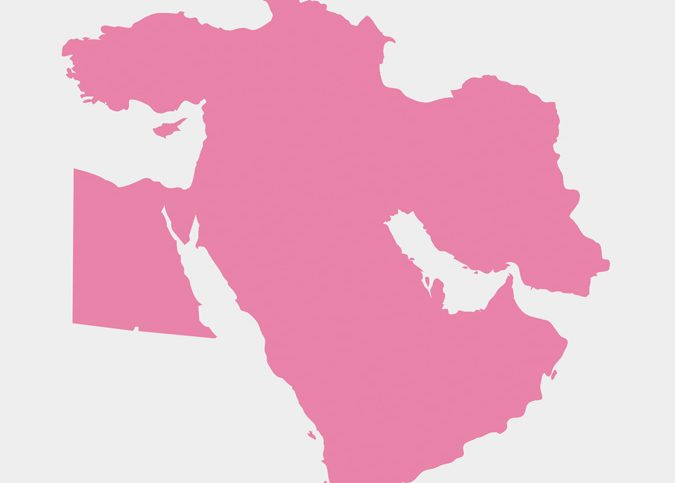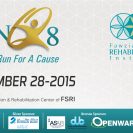Cancer is one of the leading causes of death worldwide. In 2012, there were approximately 14.1 million new cancer cases in the world: 7.4 million (53%) in males and 6.7 million (47%) in females. The non-profit organization, Cancer Research UK estimated in 2012 that Kuwait has approximately 100 cancer cases per 100,000 people, and you have to look hard these days to find someone who has not been affected by the disease, either themselves, or a person they are close to.
October is Breast Cancer Awareness month, which is the most common cause of cancer related deaths in both women and men. Research shows that early detection is the most important strategy to combat breast cancer, and the Arab Health Roundtable 2013 – ‘Breast Cancer in the Middle East’ reports that awareness is the single most important step toward promoting effective breast cancer screening programs in the Middle East.
“The age-specific rate of deaths from breast cancer compared to the age-specific incidence of breast cancer is higher in Africa and the Middle East than in Europe and North America, so clearly this is a major problem” says Dr. Gillian Newstead, Clinical Director of the Section of Breast Imaging at the University of Chicago.
Experts agree that the difference is screening, although, regular self-examination still plays a key role in detecting any abnormalities (such as a lump, discharge/bleeding or a change in color of the skin or nipple) and taking the first step to visit the doctor. Data from worldwide breast screening programs makes it “very clear that mortality is particularly affected by finding the cancers early,” Dr. Newstead contended. In one particular study, the proportion of cancers detected (at over 25 mm) fell from 70% before screening was reduced to 20% after. Even when treated with modern therapies, the data suggests “relatively little improvement in survival” in the absence of screening. Family history can also play a key role in whether an individual will develop breast cancer, so it is even more important to regularly schedule screenings if this is the case.
These days, most screening programs are based on mammography, which is very effective, but many centers around the world, including those in the Middle East, are adding more sophisticated tools for high risk patients, such as MRI and ultra-sound.
One major barrier to screening, particularly seen in the Middle East, can be the reluctance to undergo breast examination due to female modesty. However, this phenomenon is not unique to this region. Dr. Tejas Mehta, Chief of Breast Imaging at Beth Israel Deaconess Medical Center goes on to say, “where I am, there are people from multiple parts of the world and breast cancer screening is always a challenge because there are women who feel that the breast is a private organ and is not something you talk about.” She emphasized that awareness of the notion that cancer can be cured if found early is a key piece of information to change this behavior.
Another cultural barrier can be the unwillingness of women to focus on their own needs and doctors have observed that many women intentionally place themselves last. “Women tend not to take care of themselves. They take care of their children. They take care of their husband. They take care of their parents. Their concern about their health is all the way at the bottom,” Dr. Mehta noted.
Education to encourage women to focus on their own health needs is a critical step toward participation in breast cancer screening programs.
Another common obstacle to breast cancer screening in the Middle East and elsewhere in the world is the stigma associated with cancer. To avoid this stigma, women simply avoid a cancer screening test even if this will eventually lead to a bad outcome. Dr. Rola, Chief of Women’s Imaging at Mafraq Hospital, Abu Dhabi, says, “The word cancer is not as scary as before especially as we promote the message that breast cancer is curable.” Actually, as increasing public awareness within the Middle East reduces the fears associated with breast cancer, the only barriers to screening become similar to those seen elsewhere in the world, such as financial and geographical issues (reaching those in rural areas).
In Kuwait, the Hayatt Foundation and the Kuwait Cancer Control Center (the KCCC) are both doing their bit to raise awareness about the disease on a national scale. Please contact them if you need any further information or support.
HAYATT FOUNDATION KUWAIT
The Hayatt Foundation, a nonprofit organization, was founded after an insightful grandmother, who after being touched by her grandson’s short life, wanted to positively impact the lives of other underprivileged people afflicted by cancer and most of all, give them hope. These days, the noble group of people in the Hayatt Foundation, as well as the many gracious volunteers, further fulfil their mission in Kuwait to raise awareness of cancer and positively serve many people whose lives are affected by the disease.
To donate to the cause through banks in Kuwait visit http://www.hayatt.org/donations.aspor for more information visit: http://www.hayatt.org.
KUWAIT CANCER CONTROL CENTER
The Kuwait Cancer Control Center (KCCC) is dedicated entirely for the purpose of providing care for those with cancer, in Kuwait. Founded in 1968, KCCC is a governmental center affiliated to the Kuwait Ministry of Health. With over 600 highly qualified medical oncology staff, as well as a 200 bed hospital complex located in Shuwaikh and equipped with state-of-the-art medical equipment and services, they treat over 2000 new cancer patients each year from Kuwait and the region.
For more information about KCCC you can visit: http://www.kuwaitcancercenter.com.








